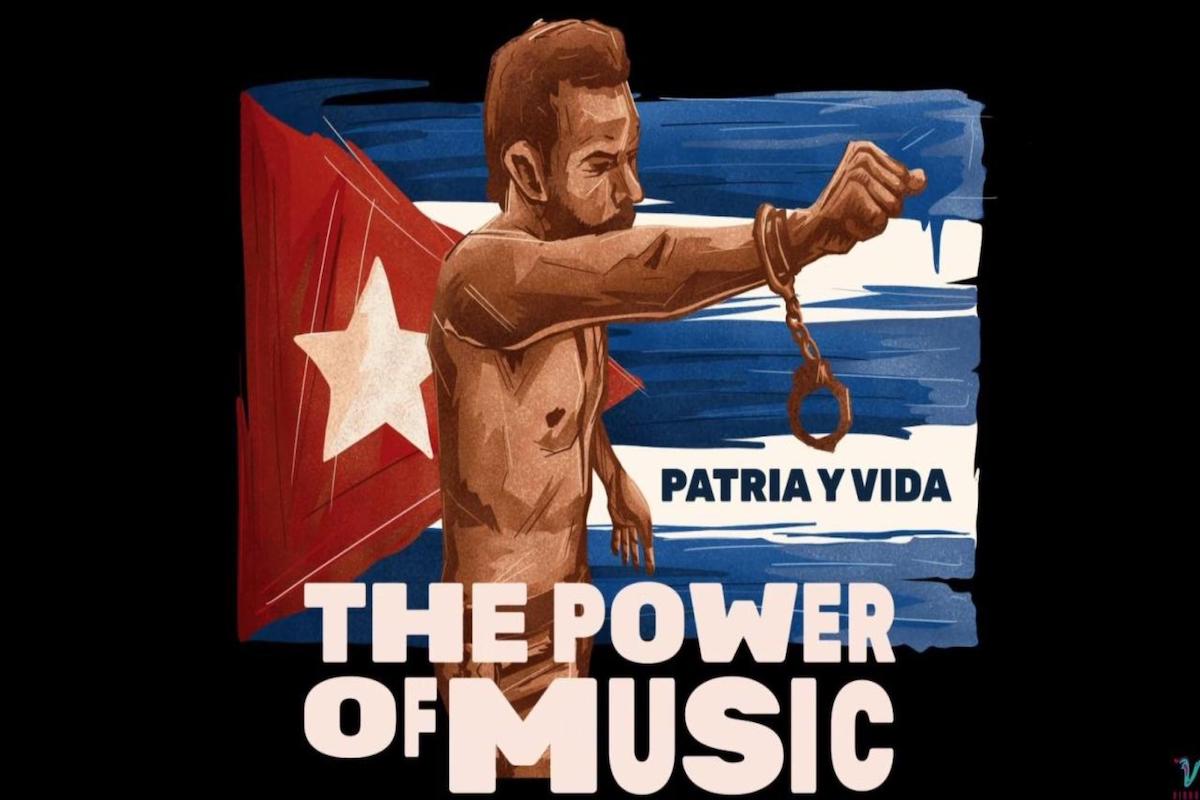

Courtesy of the Los Angeles Latino International Film Festival (LALIFF)
“Politics is a small word when you talk about human rights,” said Beatriz Luengo, director of the new documentary Patria y Vida: The Power of Music, which screened at the Los Angeles Latino International Film Festival (LALIFF) known earlier this summer and is now on the festival circuit. The film chronicles the creation and release of the Cuban protest anthem “Patria y Vida” and what came next.
It also documents events in the summer of 2021, marking the biggest protest against the island’s communist government in decades. In addition, it chronicles Cuban President Miguel Díaz-Canel’s repression tactics and ultimately supports more freedom for Cubans.
During our conversation, Luengo, who is from Spain, recounted her first trip to Cuba, when she was just 18. There, she met Yotuel Romero, her now husband and partner of 20 years. Back then, Romero was just her “first love,” she said. She asked him about this phrase she was seeing on walls and billboards all over Havana—“Patria o muerte” (Motherland or Death). He told her that it’s a governmental slogan, to which she noted, “It’s so sad that the government asks the people to die and not for living.”
Romero went on to become a legend of Cuban music, known just as Yotuel, helping to establish Cuban rap as the frontman for Orishas. And Luengo had much success appearing in the Spanish musical series “Un paso adelante” and releasing multiple albums as a recording artist.
To this day, the couple is frustrated by the sentiment behind “Patria o muerte.” They’re critical of Cuba’s one-party system that jails artists and activists for speaking out, suppresses speech and shuts off the Internet when the people use it to protest.
Together, Luengo and Romero wrote the now iconic “Patria y Vida” (“Motherland and Life”) song with Afro-Cuban rappers Descemer Bueno, Gente de Zona, Luis Manuel Otero Alcántara, Maykel Osorbo and DJ El Funky. Their song, which criticizes the Cuban government, went on to make history: It won two Grammys, was outlawed in Cuba, and became a rallying cry for the Movimiento San Isidro and those marching for change.
Of the six original performers, Maykel Osorio is a political prisoner in Cuba and several others are in exile after being threatened or banned from re-entering the country.
Along the treacherous but empowering path of making and releasing the song, Luengo filmed “everything” working with folks in el Movimiento San Isidro to capture footage on the island. She originally thought of it as a personal project, something she could share with her kids someday, showing them how their parents were “musicians—jazz musicians, Latin musicians, who with no support, with an independent label, but with a lot of love for human rights, achieved all these kind of crazy things with a song.”
“This story is something that has happened to us in the first person. And what has happened to us, it was a story that had to be told,” she added.
She’s energized by the song’s impact and the power of music (see the subtitle of the film), hoping it inspires more people to action. “With a song, you can change the story of a country. With an independent label, you can achieve all these people outside on the street,” she said.
Having achieved so much with the song, Luengo’s goal with the film is to “let the people know what has happened in Cuba… For me, Cuba is like a woman mistreated by a man who doesn’t let her speak or have an opinion.”
And indeed Patria y Vida follows the legal action the Cuban government (always a “regime” in Luengo’s words) took to suppress the song, including outlawing artistic expression in addition to taking direct action against some of the performers.
Now Luengo and Yotuel are drumming up international support, working with a lawyer they met through the United Nations to see what they can do to counter the government
Legal action aside, Luengo is convinced that her greatest contribution will always be as an artist as she has seen firsthand the power of a song to change lives, alter political realities, and vindicate human rights.
“As a director, I want to continue with telling the people stories about the power of music,” she said.
***
Cristina Escobar is the entertainment reporter for Latino Rebels. She is also the co-founder of latinamedia.co, uplifting Latina and gender non-conforming Latinx perspectives in media. She’s a member of the Latino Entertainment Journalists Association and writes at the intersection of race, gender, and pop culture. Twitter: @cescobarandrade


